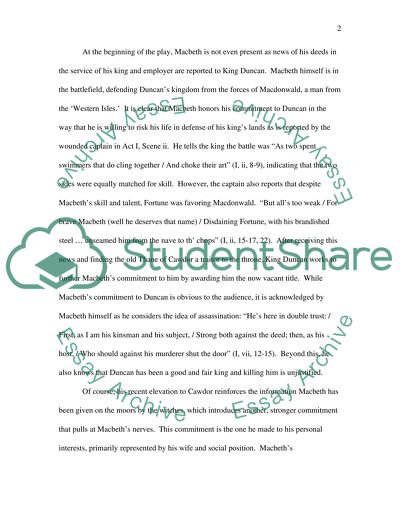Cite this document
(“Commitment Issues in Macbeth Essay Example | Topics and Well Written Essays - 2000 words”, n.d.)
Commitment Issues in Macbeth Essay Example | Topics and Well Written Essays - 2000 words. Retrieved from https://studentshare.org/literature/1544780-commitment-issues-in-macbeth
Commitment Issues in Macbeth Essay Example | Topics and Well Written Essays - 2000 words. Retrieved from https://studentshare.org/literature/1544780-commitment-issues-in-macbeth
(Commitment Issues in Macbeth Essay Example | Topics and Well Written Essays - 2000 Words)
Commitment Issues in Macbeth Essay Example | Topics and Well Written Essays - 2000 Words. https://studentshare.org/literature/1544780-commitment-issues-in-macbeth.
Commitment Issues in Macbeth Essay Example | Topics and Well Written Essays - 2000 Words. https://studentshare.org/literature/1544780-commitment-issues-in-macbeth.
“Commitment Issues in Macbeth Essay Example | Topics and Well Written Essays - 2000 Words”, n.d. https://studentshare.org/literature/1544780-commitment-issues-in-macbeth.


